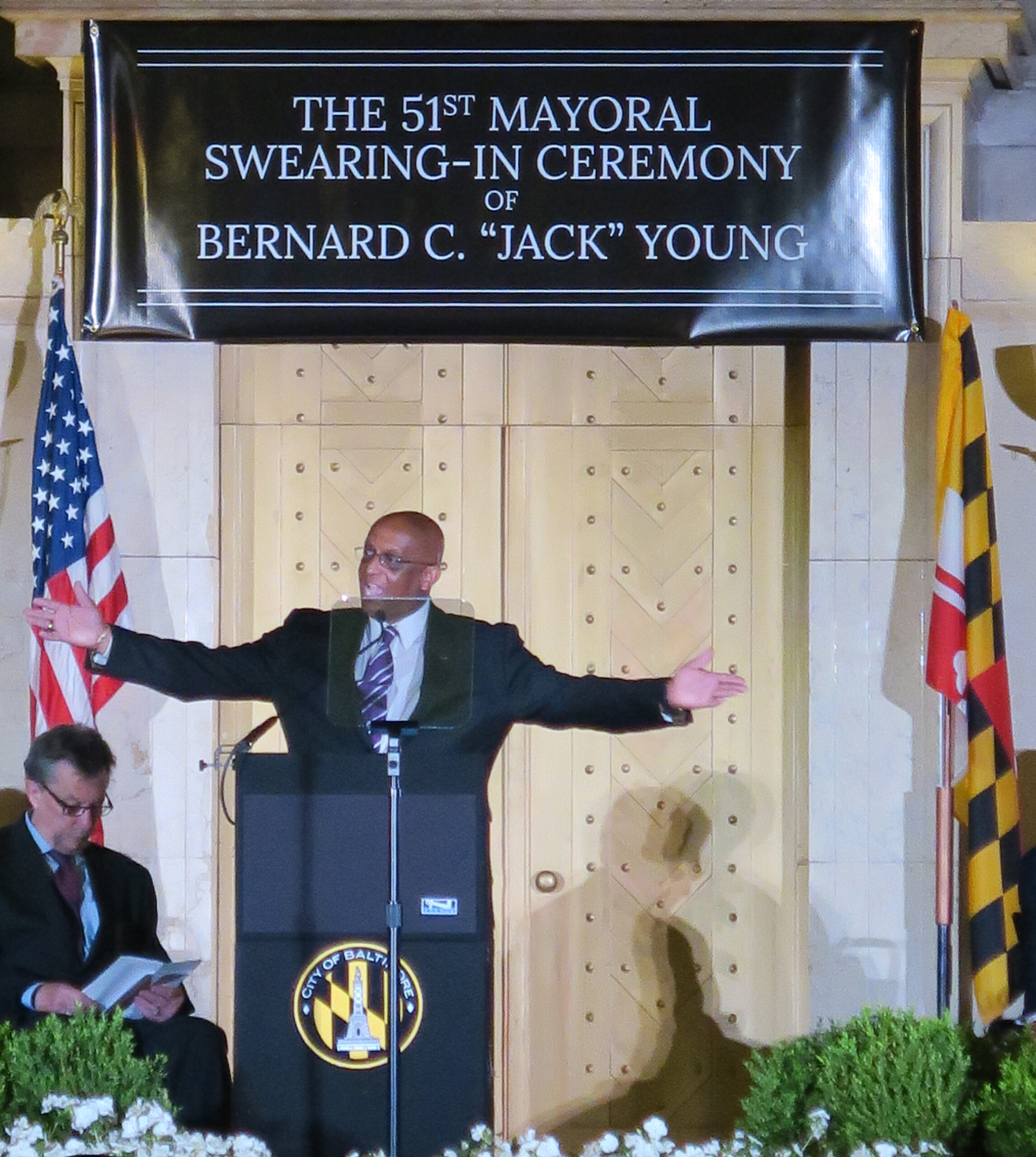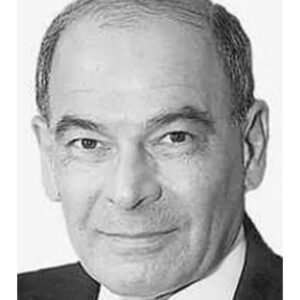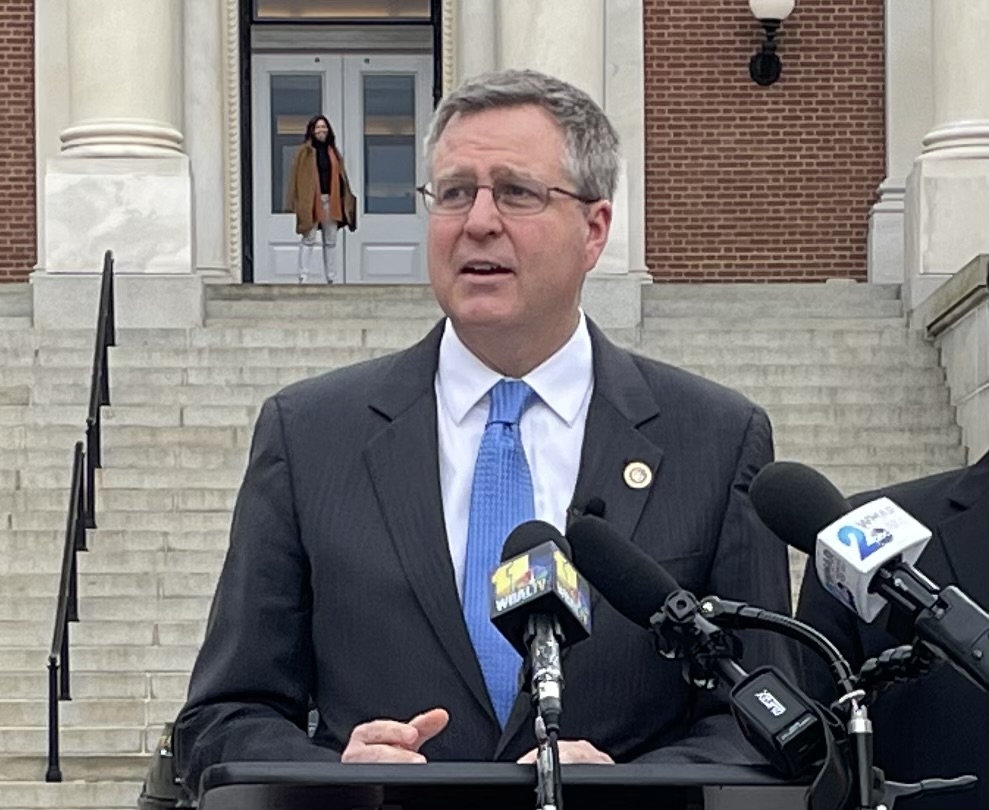
A fella can get attached to being mayor. That’s especially so for a guy who wasn’t looking for a promotion. The resume upgrade comes with a pay bump, around-the-clock police protection and shuttle service, lavish digs and staff, and more TV exposure than a Kardashian. What’s not to like?
So Mayor Bernard “Jack” Young may change his mind about running for mayor. So what? In politics, that’s no sin. You either play or get played. To assume the job that he had thrust upon him, Young had to give up his old gig to which he’d promised to return when what he thought was the end of a temporary assignment.
But circumstances suddenly changed, as did his mind. When Catherine Pugh was driven from the Baltimore mayor’s office by a posse of federal and state prosecutors, the elected muck-a-mucks in City Hall advanced a slot and the word “acting” was removed from Young’s nameplate. Now he’s the real deal. And there’s no fallback position waiting for his retreat.
So far, Young appears to be wearing his new epaulettes comfortably. He has flipped the calendar on that artificial measure of the first 100 days in office without coming apart, even as the city around him does.
Young seems to have the goodwill and support of Baltimoreans who view his diamond-in-the-rough persona as a welcome change from the haughty couture culture of his predecessor(s). He is everywhere he is needed, in the neighborhoods and on the streets, more in the kinetic style of Sheila Dixon than the sanitized distance of Pugh or Stephanie Rawlings-Blake, or, perhaps, even more in the everyman, up-from-your-Nike-laces tradition of former mayor Clarence “Du” Burns.
So here’s the deal. When Pugh took a leave of absence due to illness and scandal, Young, as City Council president – following the flow-chart in the City Charter – automatically became acting mayor, if and until Pugh’s return. Into Young’s empty chair followed Sharon Green Middleton, Council vice president.
At the time, Young said he had no intention of running for mayor, and expressed with certainty that he would be returning to his elected job as City Council president. At that interval, Pugh hadn’t yet been measured for a body bag.
But when Pugh formally resigned as mayor, the prefix “acting” was dropped and Young formally became mayor. To fill Young’s City Council president vacancy, the Council chose Councilman Brandon Scott. That left nowhere for Young to go but upward and onward. So last week Young floated the notion that he is considering running for mayor and was instantly challenged over going back on his word.
“I have a right to keep my options open,” Young said at a news conference. “I know what I said. I have a right to change my mind.”
And he also said something candid that is rarely heard from a public official: “I had a deal with Sharon Middleton.” And that deal was likely that she would step back and allow Young to reclaim his position as City Council president if Pugh returned as mayor.
As luck would have it, Young has made a career path of being in the right place at the right time. He inherited the City Council presidency when Rawlings-Blake gave up the job to become mayor as Dixon was booted from office following her conviction for personally using gift cards that were intended for the poor.
A brief refresher: Pugh took a leave of absence, and later resigned, after it was revealed that she was paid hundreds of thousands of dollars for a series of children’s books she wrote in sweetheart deals with entities she either helped to regulate or that did business with the city. The books remained largely in warehouses, undistributed and unread. The investigations are continuing.
The wonder is that Young – or anyone else – would even consider running for mayor in 2020 after spending more than three months of seeing up-close what the job involves. Already a half dozen would-be mayors have filed for the primary election on April 28 of next year.
Students of human motivation should remember that Baltimore voters, like a munificent gesture in a pauper’s will, have approved a form of public financing for next year’s municipal election wherein candidates for mayor could receive up to $1.7 million each after certain conditions are met.
City government has been crippled for weeks by a ransomware attack that shut down its computer systems. Young decided not to pay the sum of roughly $76,000 (13 bitcoins) to restore the system, arguing that the city would not give in to the mysterious some-ones who’ve hijacked the city’s computers and just might take the money and run.
Instead, the city is spending upwards of $18 million – including $10 million in surplus funds – to re-activate its network of computers. The national association of mayors adopted a resolution agreeing with Young’s position. Young sponsored the resolution.
Baltimore is experiencing another killing-spree year. Murders in the city have already surpassed last year’s numbers at the same point. The city has launched a new police recruiting drive in an effort to bring its law enforcement ranks up to full force.
Interestingly, the city will be competing for cops with the Johns Hopkins University, which won legislative approval to establish a private police force to protect its Baltimore campuses.
The city is virtually impassable. Orange cones and lane closure signs are everywhere. The city’s infrastructure seems to be collapsing under the weight of its age. Much of its underground network of pipes and conduits is more than a century old, leaky, creaky and overwhelmed by recent downpours and its low-lying waterside levels. Even the light rail system is making abbreviated runs while the ditches are repaired.
The city is also engaged in a protracted battle to save the Preakness, the once-a-year showcase event that brings thousands of visitors and millions of dollars to cash-strapped Baltimore. Trouble is, the Preakness takes place at deteriorating Pimlico Race Course, which runs races only 10 days a year in one of the most distressed and troublesome areas of Baltimore. The owners, the Stronach Group, would like to shut down the track and move the Preakness to the newly renovated Laurel Park.
And if that’s not enough, one of Baltimore’s premiere tourist attractions, Harbor Place, is partially empty and boarded up and has been placed in receivership after the owner defaulted on its loan.
Finally, the hapless Orioles are at the bottom of the pit in the American League East standings, and no matter how hard they strain to look up, there’s not a slat of blue sky in view.
Maybe Young is a Mr. Fixit, and maybe he isn’t. But welcome to Baltimore anyway.




 Creative Commons Attribution
Creative Commons Attribution